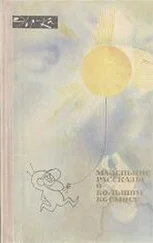While he was sitting with her on the side of the bed Mary came to the door and said that the missus wanted to see him in the parlour. He stood up to put on his coat and waistcoat, more helpless than ever. When he was dressed he went over to her to comfort her. It would be all right, never fear. He left her crying on the bed and moaning softly: ‘O my God!’
Going down the stairs his glasses became so dimmed with moisture that he had to take them off and polish them. He longed to ascend through the roof and fly away to another country where he would never hear again of his trouble, and yet a force pushed him downstairs step by step. The implacable faces of his employer and of the Madam stared upon his discomfiture. On the last flight of stairs he passed Jack Mooney who was coming up from the pantry nursing two bottles of Bass. They saluted coldly; and the lover’s eyes rested for a second or two on a thick bulldog face and a pair of thick short arms. When he reached the foot of the staircase he glanced up and saw Jack regarding him from the door of the return-room.
Suddenly he remembered the night when one of the music-hall artistes, a little blond Londoner, had made a rather free allusion to Polly. The reunion had been almost broken up on account of Jack’s violence. Everyone tried to quiet him. The music-hall artiste, a little paler than usual, kept smiling and saying that there was no harm meant: but Jack kept shouting at him that if any fellow tried that sort of a game on with his sister he’d bloody well put his teeth down his throat, so he would.
Polly sat for a little time on the side of the bed, crying. Then she dried her eyes and went over to the looking-glass. She dipped the end of the towel in the water-jug and refreshed her eyes with the cool water. She looked at herself in profile and readjusted a hairpin above her ear. Then she went back to the bed again and sat at the foot. She regarded the pillows for a long time and the sight of them awakened in her mind secret, amiable memories. She rested the nape of her neck against the cool iron bed-rail and fell into a reverie. There was no longer any perturbation visible on her face.
She waited on patiently, almost cheerfully, without alarm, her memories gradually giving place to hopes and visions of the future. Her hopes and visions were so intricate that she no longer saw the white pillows on which her gaze was fixed or remembered that she was waiting for anything.
At last she heard her mother calling. She started to her feet and ran to the banisters.
‘Polly! Polly!’
‘Yes, mamma?’
‘Come down, dear. Mr. Doran wants to speak to you.’
Then she remembered what she had been waiting for.
The Bronckhorst Divorce-case (Rudyard Kipling)
In the daytime, when she moved about me,
In the night, when she was sleeping at my side,—
I was wearied, I was wearied of her presence,
Day by day and night by night I grew to hate her—
Would God that she or I had died!
Confessions
There was a man called Bronckhorst – a three-cornered, middle-aged man in the Army – grey as a badger, and, some people said, with a touch of country-blood in him. That, however, cannot be proved. Mrs. Bronckhorst was not exactly young, though fifteen years younger than her husband. She was a large, pale, quiet woman, with heavy eyelids over weak eyes, and hair that turned red or yellow as the lights fell on it.
Bronckhorst was not nice in any way. He had no respect for the pretty public and private lies that make life a little less nasty than it is. His manner towards his wife was coarse. There are many things – including actual assault with the clenched fist – that a wife will endure; but seldom a wife can bear – as Mrs. Bronckhorst bore – with a long course of brutal, hard chaff, making light of her weaknesses, her headaches, her small fits of gaiety, her dresses, her queer little attempts to make herself attractive to her husband when she knows that she is not what she has been, and – worst of all – the love that she spends on her children. That particular sort of heavy-handed jest was specially dear to Bronckhorst. I suppose that he had first slipped into it, meaning no harm, in the honeymoon, when folk find their ordinary stock of endearments run short, and so go to the other extreme to express their feelings. A similar impulse makes a man say, ‘ Hutt , you old beast!’ when a favourite horse nuzzles his coat-front. Unluckily, when the reaction of marriage sets in, the form of speech remains, and, the tenderness having died out, hurts the wife more than she cares to say. But Mrs. Bronckhorst was devoted to her ‘Teddy’ as she called him. Perhaps that was why he objected to her. Perhaps – this is only a theory to account for his infamous behaviour later on – he gave way to the queer, savage feeling that sometimes takes by the throat a husband twenty years married, when he sees, across the table, the same, same face of his wedded wife, and knows that, as he has sat facing it, so must he continue to sit until the day of its death or his own. Most men and all women know the spasm. It only lasts for three breaths as a rule, must be a ‘throw-back’ to times when men and women were rather worse than they are now, and is too unpleasant to be discussed.
Dinner at the Bronckhorsts’ was an infliction few men cared to undergo. Bronckhorst took a pleasure in saying things that made his wife wince. When their little boy came in at dessert Bronckhorst used to give him half a glass of wine, and, naturally enough, the poor little mite got first riotous, next miserable, and was removed screaming. Bronckhorst asked if that was the way Teddy usually behaved, and whether Mrs. Bronckhorst could not spare some of her time ‘to teach the little beggar decency’. Mrs. Bronckhorst, who loved the boy more than her own life, tried not to cry – her spirit seemed to have been broken by her marriage. Lastly, Bronckhorst used to say, ‘There! That’ll do, that’ll do. For God’s sake try to behave like a rational woman. Go into the drawing-room.’ Mrs. Bronckhorst would go, trying to carry it all off with a smile; and the guest of the evening would feel angry and uncomfortable.
After three years of this cheerful life – for Mrs. Bronckhorst had no women-friends to talk to – the station was startled by the news that Bronckhorst had instituted proceedings on the criminal count , against a man called Biel, who certainly had been rather attentive to Mrs. Bronckhorst whenever she had appeared in public. The utter want of reserve with which Bronckhorst treated his own dishonour helped us to know that the evidence against Biel would be entirely circumstantial and native. There were no letters; but Bronckhorst said openly that he would rack Heaven and Earth until he saw Biel superintending the manufacture of carpets in the Central Jail. Mrs. Bronckhorst kept entirely to her house, and let charitable folks say what they pleased. Opinions were divided. Some two-thirds of the station jumped at once to the conclusion that Biel was guilty; but a dozen men who knew and liked him held by him. Biel was furious and surprised. He denied the whole thing, and vowed that he would thrash Bronckhorst within an inch of his life. No jury, we knew, would convict a man on the criminal count on native evidence in a land where you can buy a murder-charge, including the corpse, all complete for fifty-four rupees; but Biel did not care to scrape through by the benefit of a doubt. He wanted the whole thing cleared; but, as he said one night, ‘He can prove anything with servants’ evidence, and I’ve only my bare word.’ This was almost a month before the case came on; and beyond agreeing with Biel, we could do little. All that we could be sure of was that the native evidence would be bad enough to blast Biel’s character for the rest of his service; for when a native begins perjury he perjures himself thoroughly. He does not boggle over details.
Читать дальше
Конец ознакомительного отрывка
Купить книгу












